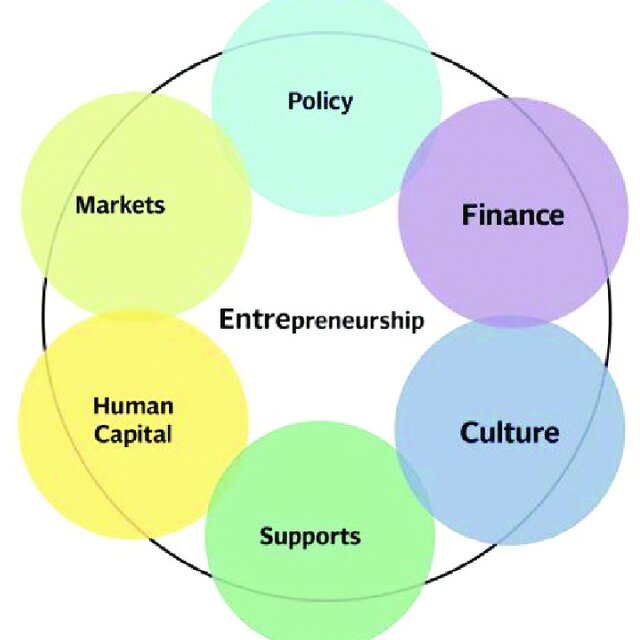Entrepreneurship, the art of turning innovative ideas into viable businesses, has gained immense popularity as a career choice in recent years. This article explores the world of entrepreneurship, outlining the steps to becoming a successful entrepreneur, the challenges and rewards it brings, and why it stands out as a career option.
Table of contents
Characteristics of Successful Entrepreneurs

Successful entrepreneurs share several common traits. They possess an unwavering passion for their ideas, are unafraid of taking risks, adapt to changing circumstances, and continually foster creativity and innovation. These characteristics drive them to achieve their goals and overcome obstacles.
Steps to Becoming an Entrepreneur
To embark on an entrepreneurial journey, one must first identify their passion or area of interest. Market research and a well-structured business plan are crucial. Additionally, securing funding and addressing legal considerations are essential steps in setting up a business.
| Step | Explanation |
| 1. Identify Your Passion or Interest | Start by understanding what genuinely excites and motivates you. Passion is a driving force behind entrepreneurial success. Consider your interests, skills, and values to determine your niche. |
| 2. Market Research | Thorough market research is vital. It helps you identify your target audience, competition, and potential gaps in the market. Understanding customer needs and market trends is key to shaping your business idea. |
| 3. Develop a Business Idea | Based on your research, create a unique business concept that addresses a specific problem or fulfills a need in the market. Your idea should have a clear value proposition. |
| 4. Create a Business Plan | A well-structured business plan outlines your business goals, strategies, financial projections, and operational details. It serves as a roadmap for your venture and is essential for attracting investors or securing loans. |
| 5. Secure Funding | Determine the financial requirements of your business and explore various funding options, such as personal savings, loans, angel investors, venture capital, or crowdfunding. Your choice will depend on your business model and needs. |
| 6. Legal Considerations | Address the legal aspects of your business, including selecting a business structure (e.g., sole proprietorship, LLC, corporation), registering your business name, obtaining necessary licenses and permits, and understanding tax obligations. Consulting with a legal expert is advisable. |
| 7. Create a Brand Identity | Establish a brand identity that reflects your business values and resonates with your target audience. This includes creating a logo, choosing a color scheme, and defining your brand’s personality. |
Challenges and Rewards of Entrepreneurship

While entrepreneurship offers independence and personal fulfillment, it comes with financial risks and challenges. Achieving a work-life balance can be difficult, but the sense of accomplishment and freedom make it worthwhile.
Entrepreneurship vs. Traditional Careers

Entrepreneurship and traditional careers differ significantly. Entrepreneurs enjoy greater independence and potentially higher financial rewards. Traditional careers offer stability but may lack the excitement of building something from scratch. Setbacks and failures are part of the entrepreneurial journey. They provide invaluable lessons, fostering resilience and the ability to adapt to unforeseen challenges.
Tips for Aspiring Entrepreneurs

Building a strong network, embracing continuous learning, and staying updated with industry trends are vital for aspiring entrepreneurs. These strategies help them stay competitive in the market. Identifying unique opportunities in the market and specializing in a particular niche can set entrepreneurs apart from the competition.
Marketing and Branding
Effective marketing and branding strategies are essential for promoting a business. A strong brand identity helps attract and retain customers. Leveraging technology is critical in today’s entrepreneurial landscape. Online platforms and tools facilitate marketing, customer engagement, and business management.
Financial Management
Budgeting and financial planning are crucial for a business’s success. Effective cash flow management ensures stability and growth. Expanding and growing a business is a key goal for many entrepreneurs. Scaling brings its own set of challenges, but it also opens up new opportunities..
Conclusion
Entrepreneurship offers a unique and rewarding career path for those who are willing to take risks, embrace challenges, and strive for success. It provides an opportunity to turn passions into profitable ventures and make a lasting impact on the world.
Readmore:
What is Entrepreneurship Mindset Curriculum?
What is Corporate Entrepreneurship
What is Creativity in Entrepreneurship
Is Startup India Boosting Entrepreneurship
FAQs
Entrepreneurship is not for everyone, as it requires a high tolerance for risk and a strong work ethic.
Yes, many successful entrepreneurs started with minimal capital and gradually expanded their businesses.
Embrace failure as a learning experience and stay focused on your long-term goals.
Technology, e-commerce, and sustainable businesses are some of the sectors with promising opportunities.

